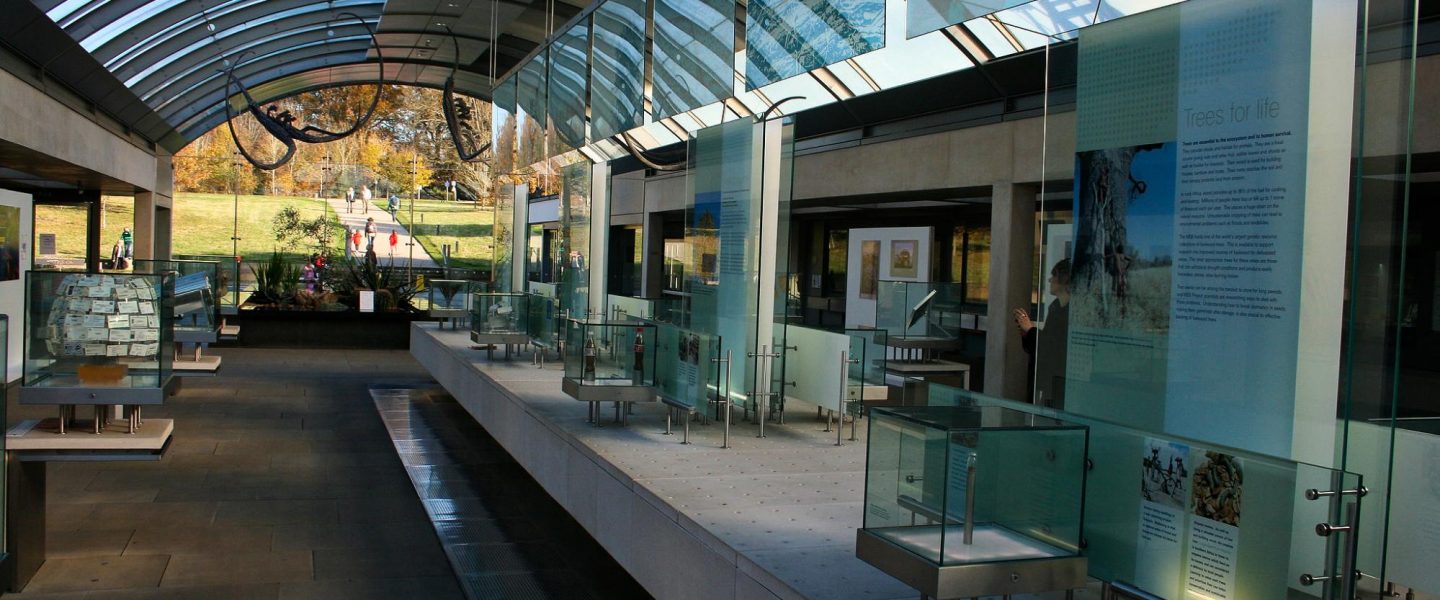The Doomsday Vaults Storing Seeds, Data and DNA to Protect Our Future
PICKS are stories from many sources, selected by our editors or recommended by our readers because they are important, surprising, troubling, enlightening, inspiring, or amusing. They appear on our site and in our daily newsletter. Please send suggested articles, videos, podcasts, etc. to picks@whowhatwhy.org.
|
Listen To This Story
|
The Doomsday Vaults Storing Seeds, Data and DNA to Protect Our Future (Maria)
The author writes, “It is a gray winter day at the Millennium Seed Bank in Wakehurst, Sussex [UK] and the maze of featureless corridors and reinforced concrete adds to the 1984-ish austerity of the setting. These vaults are designed to withstand the worst apocalypse we can imagine — be it caused by bombs, radiation, floods or disease. … Built in 2000, this seed bank is one of as many as 1,700 worldwide otherwise known as ‘doomsday vaults’: facilities intended to safeguard humanity in the event of civilization’s collapse. It isn’t just about seeds — researchers are preserving everything from DNA to data.”
20 Women Are Now Suing Texas, Saying State Abortion Laws Endangered Them (Sean)
From NPR: “Cristina Nuñez’s doctors had always advised her not to get pregnant. She has diabetes, end-stage renal disease and other health conditions, and when she unexpectedly did become pregnant, it made her extremely sick. Now she is suing her home state of Texas, arguing that the abortion laws in the state delayed her care and endangered her life. Nuñez and six other women joined an ongoing lawsuit over Texas’s abortion laws. The plaintiffs allege the exception for when a patient’s life is in danger is too narrow and vague, and endangered them during complicated pregnancies.”
Oil, Gas Giants Could Pay Climate Damage and Still Profit: Research (DonkeyHotey)
The author writes, “Major oil and gas companies such as Aramco, ExxonMobil and Shell could have paid for their share of the damage caused by climate change and still earned trillions of dollars in profit, researchers said on Thursday. … If the top 25 oil and gas companies had been held accountable for their role in global warming in recent decades, they would still have made $10 trillion dollars in profit, according to the report published by think tank Climate Analytics.”
Number of Species at Risk of Extinction Doubles to 2 Million, Says Study (Laura)
The author writes, “Two million species are at risk of extinction, a figure that is double previous UN estimates, new analysis has found. While scientists have long documented the decline of species of plants and vertebrates, there has always been significant uncertainty over insects, with the UN making a ‘tentative estimate’ of 10% threatened with extinction in 2019. Since then, more data has been collected on insects, showing the proportion at risk of extinction is much higher than previously estimated. Because there are so many insect species, this doubles the global number of species at risk, according to the paper, published in Plos One.”
Malcolm Gladwell’s Media Empire Is Being Torn Apart (Reader Jim)
From The Daily Beast: “Forty years of friendship between media titans Malcolm Gladwell and Jacob Weisberg is being seriously tested as Pushkin Industries, the podcast company they co-founded together, navigates the extremely perilous financial headwinds that have beset the industry.”
To Kill To Kill a Mockingbird (Al)
From The Bulwark: “After all the controversies about right-wing activists working to purge public school curricula and libraries of books they find objectionable — generally ones dealing with either sexual morality or the painful history of racism in America — the latest report of such a purge comes from a liberal blue-state community. This time, Harper Lee’s To Kill a Mockingbird, a beloved antiracist classic, has been taken off the list of required books in high school freshman English classes in the Mukilteo School District in Washington State due to a complaint from four progressive teachers who regard it as racially insensitive and harmful to minority students.”
What the Flush? The Culprits Clogging King County, WA, Sewers (Reader Steve)
The author writes, “A Stormtrooper action figure, a racing Sonic the Hedgehog, Legos and rubber duckies. This isn’t a guide to holiday shopping for your kids — they’re the culprits clogging King County’s sewers. Staff members at West Point Treatment Plant shared in a Friday blog post their ‘trophy collection’ of the oddities they have found over the years, serving as a PSA to be on alert for careless flushes that can jam up equipment and slow down the treatment process.”




